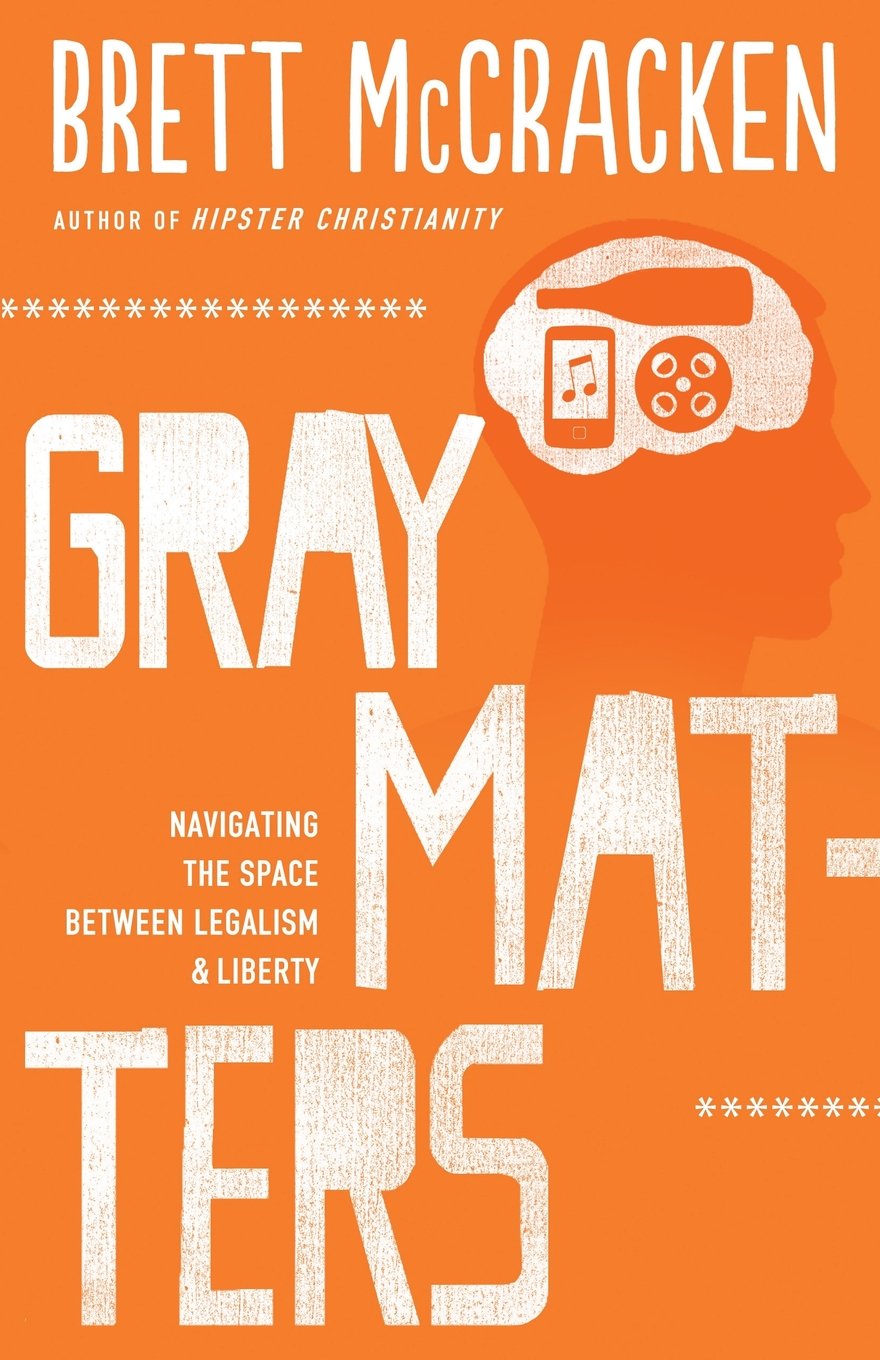Book Review: Gray Matters

Review by Stan Markowski
Long ago, in a denomination far, far away, people used to argue over how to baptize, how the church related to Israel and whether miraculous manifestations of the Holy Spirit still took place. These “conversations” (in quotes because it’s not a conversation if only one side is talking) aren’t at the forefront of the second-level issue discussion anymore. Second-level issues are those referred to as “nonessentials” in some churches’ mission statements: “in essentials unity, in nonessentials liberty.”
Introducing Gray Matters—a book that says, Let’s change the conversation toward something people are actually talking about.
Dividing his topics into four main categories of eating, listening, watching and drinking, McCracken does a superb job demonstrating that these are the topics people are thinking about, specifically millennials. Each section gives the traditional and liberal perspectives, with McCracken laying his cards on the table to show what he believes.
The book is worth picking up for its research and analysis alone. This is not your junior at a Christian college bemoaning the fact he can’t dance and drink. This is someone who worked hard to trace the historical progression that brought the church to its current cultural standpoints. Beyond that, this is not a young evangelical saying, “I drink, so what’s the problem,” but someone whose views have been informed by the saints before him (Kuyper and Niebuhr, to name a few).
The central question throughout the book is: How should a Christian consume these things that are so commonplace? Should we abstain or indulge? What would moderation look like? Can this be edifying to oneself? Can this be used evangelically?
Any pastor in modern America would do well to read this book, even if just to get in the mind of a millennial.
The church seems to have lost its ability to dialogue about issues. We either pretend they don’t exist—in the Christian version of don’t ask, don’t tell—or we refuse to admit that someone might have a legitimate way of thinking that is opposite of ours.
This is why the book is worth reading. Not because its content is anything special. But because, ultimately, it forces us to learn how to converse about things we disagree on and learn to make space for one another.
Stan Markowski is pastor of student ministries at Cypress Church (EFCA) in Cypress, California. He has a handlebar moustache to validate his hipster-millennial-pastor persona, and he finds that in his ministry and his social group, these are the topics on the minds of the people.
Review by Jack Brooks
Brett McCracken examines the Christian ethics pertaining to food, music, movies and alcohol. But his via media moves irregularly back-and-forth, kicking up a cloud of self-contradiction and vagueness.
His issue-overviews are good. He chides hipster snobbishness and rebukes ex-fundamental Christians for deliberately acting-out, and his biblical summary regarding alcohol is well-researched. But then he zigs, by using soft, vague language on moral issues du jour.
For example: Rather than say that smoking pot is wrong, he says we should all think, discuss and mull over the subject. It’s “probably” a good idea for porn-addicted people to avoid watching explicit sex-scenes in films. Probably? Smoking tobacco can be fine, even though 15 pages earlier he had said that for Christians at parties to be smoking (along with other kinds of debauched behavior) is inappropriate.
His personal criteria for viewing or not viewing a film is also feelings-based. The book’s greatest omission, though, is that he doesn’t lay out any theological foundations. He does not explain how he approaches biblical ethics. I want to know these things since, if a writer is going to deal me a hand of advice allegedly from God, I want to know that the deck hasn’t been stacked.
Apart from not explaining any of his presuppositions (ironic, since he’s a Kuyper fan), McCracken shows theological error in other areas. For instance, he describes any Christian who is stumbled by sex-scenes (such as the lesbian sex-scenes in Mulholland Drive) as a “weaker brother,” which is theologically wrong not to mention patronizing (which conflicts with his exhortation of hipster Christians not to be patronizing). I also found his thoughts about Christian and common grace confusing, needing sharper definition and distinction.
McCracken seems infected with antinomianism, easy-believism and a bad case of “not-a-fundamentalism,” which make him an unreliable guide to Christian ethics. I do not recommend.
Jack Brooks is pastor of Ironworks Pike Community Church (EFCA) in Georgetown, Kentucky (formerly Georgetown EFC). He is the author of Life Is Worth Living and an up-coming e-book, Outgrowing Sexual Temptation.
Send a Response
Share your thoughts with the author.